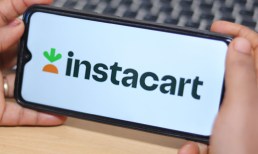The United States’ leading aggregator announced Thursday (Nov. 16) the expansion of its alcohol delivery business to New Jersey, noting in the news release that, between 2021 and 2022, alcoholic beverage sales more than doubled.
“This is a huge step forward for consumers across New Jersey who will now be able [to] enjoy the convenience of having alcohol delivered safely to their doors from their favorite local businesses through the DoorDash platform,” DoorDash General Manager of Alcohol and Convenience Erik Ragotte said in the release.
The news comes two months after the aggregator announced that it is working with grocer Aldi to bring “safe, age-verified” alcohol delivery to 80% of DoorDash customers.
Across the aggregator space, players are expanding their beer, wine and spirits options as best they can while adhering to regulations that vary from market to market.
Over the summer, for instance, Uber Eats announced a partnership with Midwestern grocery chain Hy-Vee to provide delivery from more than 260 of the latter’s locations, including its liquor stores. The aggregator has been expanding its alcoholic beverage selection for years, having acquired on-demand beer, wine and spirits delivery platform Drizly in early 2021.
Advertisement: Scroll to Continue
Last year, Grubhub announced a partnership with Gopuff to sell from the latter’s dark stores through the aggregator’s marketplace, adding Gopuff’s alcohol inventory to its platform.
The eCommerce alcoholic beverage space has changed significantly in the past few years.
A PYMNTS Intelligence 2021 survey of nearly 2,000 consumers found that nearly half of consumers who purchased alcohol online for same-day delivery were doing so more often than pre-pandemic, and a similar share said the same of buying alcohol online for delivery at a later date. Plus, 70% to 80% of consumers who had increased their adoption reported that they intended to maintain some or all of their buying behaviors even as they returned to bars and restaurants.
While aggregators have been looking to bring alcoholic beverage retailers into the digital world, beverage brands themselves have increasingly been taking on eCommerce.
“Drizly started right around the same time as ReserveBar did, and Drizly said, … ‘The world needs a digital liquor store,’ and that’s what they built,” Derek Correia, CEO of ReserveBar, noted in an interview with PYMNTS’ Karen Webster published Nov. 1. “ReserveBar said, … ‘The brands in this business need a place to send their traffic where that brand’s story-tell is really optimized all the way through the path to purchase because that doesn’t happen in brick-and-mortar, and it didn’t exist digitally.”
Meanwhile, others are targeting alcoholic beverage eCommerce opportunities outside of the typical digital spaces. Zac Brandenberg, CEO of beer, wine and spirits eCommerce provider DRINKS, noted in an interview with PYMNTS published in October that he sees the chance to make it so that everyone from general retailers to individual public figures can sell alcohol from their online shops.
He said he sees the opportunity “to be able to weave in alcohol products, which is a high-margin, high-demand category, into creator storefronts and influencer storefronts.”




